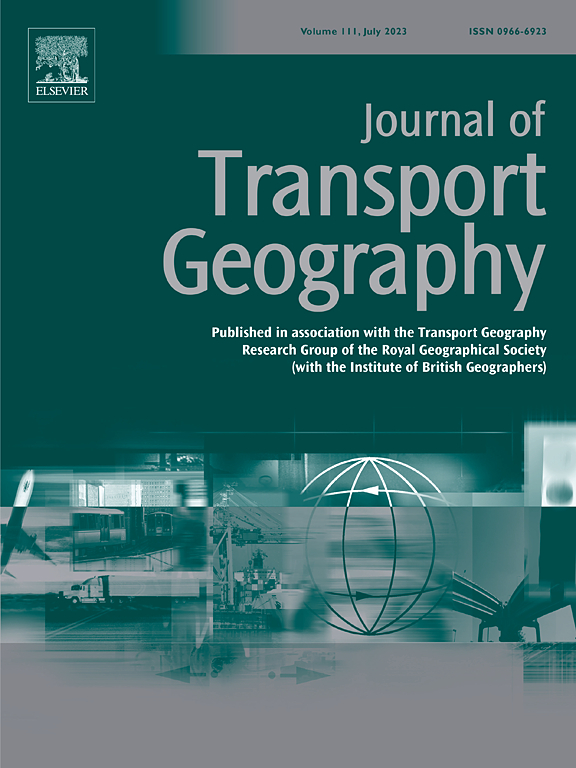Applying a relational lens to the work travel experiences of diverse women
IF 6.3
2区 工程技术
Q1 ECONOMICS
引用次数: 0
Abstract
Transport systems have often been designed with the focus of moving commuters in cars as efficiently as possible between home and work during peak travel times associated with standard working hours. For many women, such as those who do not drive, who are disabled, who have children, or who work non-standard hours, these transport systems do not support their commuting needs. Despite a growing body of research over the last 40 years into how women travel to work, this has tended towards researching women as a homogenous group.
To understand a broader range of commuting experiences, this qualitative study explores work-related travel experiences of diverse women living in Christchurch, New Zealand, whose experiences are impacted by factors such as ethnicity, cultural obligations, socio-economic status, employment status, level of education, age group, family responsibilities, health, and disability status. Using relational theory to analyse how women navigate conflicting space-times, interpersonal relationships, the built environment, the past, present and future, and societal power structures, this research reframes commuting as an inherently relational activity. It challenges the traditional notion of a commuter as an autonomous individual making independent travel decisions. Instead, it portrays commuting as deeply entangled with societal systems and relationships that influence all aspects of women's travel. By rethinking who these systems are designed for, we can better address the interrelated realities of women's lives, ultimately creating more inclusive, equitable, and efficient urban environments.
用关系的视角观察不同女性的工作旅行经历
交通系统的设计重点往往是在与标准工作时间相关的高峰旅行时间内,尽可能高效地让通勤者乘坐汽车从家到公司。对许多妇女来说,例如那些不开车、残疾、有孩子或工作时间不规范的妇女,这些交通系统不能满足她们的通勤需求。尽管在过去的40年里有越来越多的关于女性如何上班的研究,但这些研究都倾向于把女性作为一个同质群体来研究。为了了解更广泛的通勤经历,本定性研究探讨了生活在新西兰克赖斯特彻奇的不同女性的工作相关旅行经历,这些经历受到种族、文化义务、社会经济地位、就业状况、教育水平、年龄组、家庭责任、健康和残疾状况等因素的影响。本研究利用关系理论分析女性如何在冲突的时空、人际关系、建筑环境、过去、现在和未来以及社会权力结构中穿行,将通勤重新定义为一种内在的关系活动。它挑战了传统观念,即通勤者是自主做出出行决定的个体。相反,它将通勤与影响女性出行方方面面的社会制度和关系深深纠缠在一起。通过重新思考这些制度的设计对象,我们可以更好地解决妇女生活中相互关联的现实,最终创造更加包容、公平和高效的城市环境。
本文章由计算机程序翻译,如有差异,请以英文原文为准。
求助全文
约1分钟内获得全文
求助全文
来源期刊

Journal of Transport Geography
Multiple-
CiteScore
11.50
自引率
11.50%
发文量
197
期刊介绍:
A major resurgence has occurred in transport geography in the wake of political and policy changes, huge transport infrastructure projects and responses to urban traffic congestion. The Journal of Transport Geography provides a central focus for developments in this rapidly expanding sub-discipline.
 求助内容:
求助内容: 应助结果提醒方式:
应助结果提醒方式:


